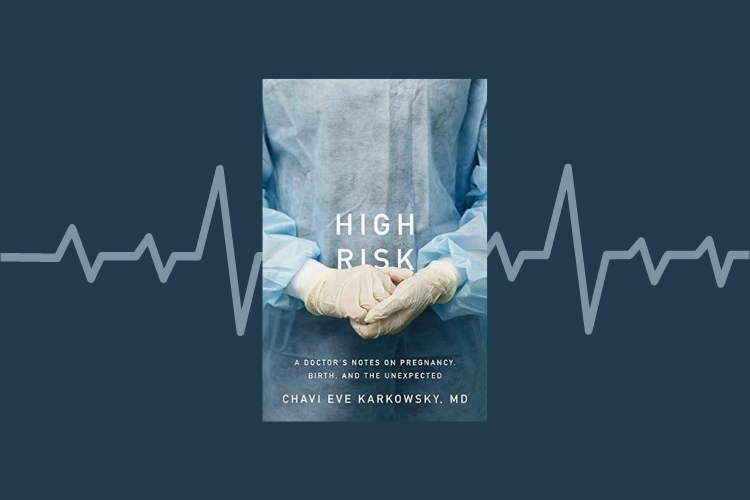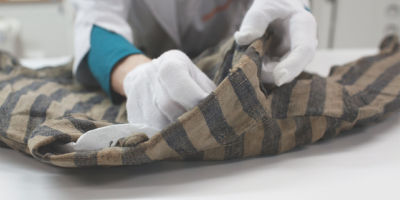
Perilous Childbirth. Yes, Even Now.
Allison Yarrow on perilous childbirth
In a small ultra-Orthodox hospital in northern Israel, pregnant women seek the Rebbe’s blessing before undergoing medical procedures, like induction of labor, or surgical birth. Recently, Dr. Chavi Karkowsky, an obstetrician who sees patients with high-risk pregnancies, attended a woman whose water had broken at 23 weeks, far too soon. She feared the woman’s rebbe would instruct her to continue the pregnancy, even if it was life-threatening. She told the woman in Hebrew, “You are the most important person in the world.” The woman smiled and replied, “That’s exactly what the Rebbe said.”
Whether or not they have a rebbe they rely upon for religious counsel, all people giving birth should have their own lives viewed as sacrosanct. Naturally, they enter pregnancy filled with hope, anticipating joy. Media, art, and most pregnancy books stoke these expectations by depicting pregnancy with a happy ending. But birth stories are almost always far more complicated.
Karkowsky’s new book, High Risk: Stories of Pregnancy, Birth, and the Unexpected (Liveright, $26.95), is a specialist’s meditation on caring for women in this life stage. Karkowsky, who currently practices in New York City, pulls back the drape veiling American hospitals to tell dramatic and tragic stories of birth and pregnancy—one pregnant patient is so debilitated by pregnancy morning sickness that she is hospitalized for weeks, another’s life is saved, and a third woman’s baby is born but won’t live.
These stories often end in cliffhangers. We are left guessing what happens to some mothers-to-be in Karkowsky’s care—one has an abnormal ultrasound, another is dosed on unneeded medication (and given too much), and a third leaves hospital care to tend to her family against Karkowsky’s advice. The incompleteness of these stories undergirds one of Karkowsky’s central points, which is that birth stories are not simple, nor are they fixed. Where they begin and end is muddy, since doctors and patients rarely see each other completely.
The book benefits from a fascinating central tension that is both personal to Karkowksy and highly political. She loves her patients, supports their bodily autonomy, and champions their ability to direct their own care. However, she also acknowledges the failings of the modern medical system she works in, one in which birthing people are often traumatized, dehumanized, and suffer more than they should. Witnessing her wrestle with these opposing realities highlights the intractability of the problems that beset hospital birth today. And yet her willingness to both personalize these problems and confront them gives me hope.
Karkowsky’s chapter about implicit bias and racism in obstetrics—which has produced a maternal mortality rate more than three times higher for Black women than white women—provides powerful testimony. Too many Black mothers are dying during and after childbirth. Curiously, we rarely hear from their doctors. Karkowsky is quick to recognize her position of power in a medical setting, not only as the doctor, but as a white woman. She describes feeling grief for the unacceptable loss of these Black women’s lives, and also shame for being part of the system through her role delivering babies. Routinely, Black women’s postpartum suffering is ignored, or their pain isn’t believed, as was the case with tennis great Serena Williams, who nearly died of a blood clot after delivering her daughter in 2017. Williams had a history of blood clots and knew what was happening, but nurses assumed that she was confused. Karkowsky describes how racism seeps into Black women’s perinatal experiences, and shapes how they relate to their doctors. Her perspective is an important contribution to the work needed to provide unbiased care for Black women giving birth.
Reading this book, I often thought that had I faced major pregnancy complications, I would have been very lucky to have looking after me a highly trained professional as thoughtful and wholehearted as Karkowsky. Some of her patients feel this way. Others don’t, and instead reject what she has to offer— technology, expertise, advice—and she recounts those tales too. They support another one of her theses, that the stories women tell about their healthcare and their own bodies are subjective, evolving, and very much their own.
Allison Yarrow is a journalist and the author of 90s Bitch: Media, Culture, and the Failed Promise of Gender Equality (Harper Perennial, 2018) and the forthcoming book, The Mother Load: How Patriarchy Stole and Controls Pregnancy, Birth, and Motherhood, and How We Can Take Them Back (Seal Press).




